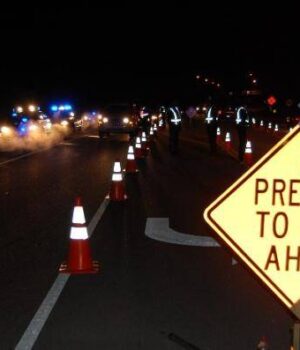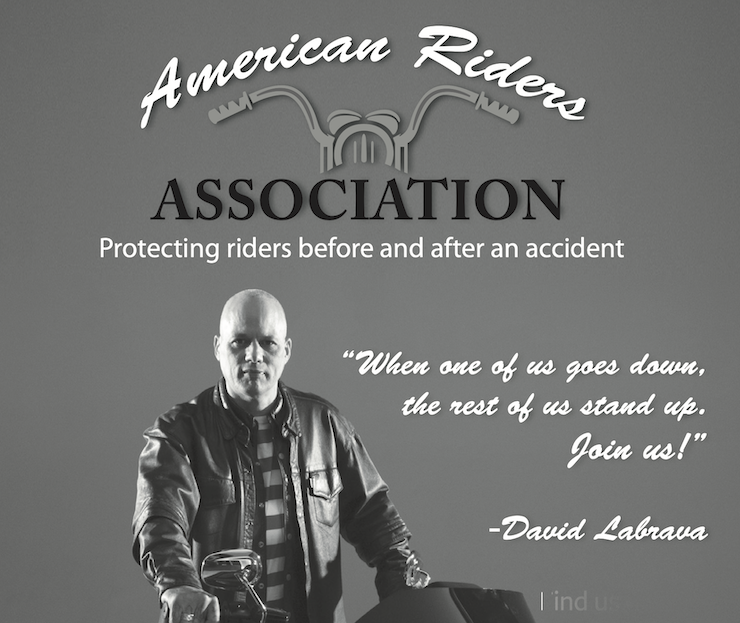You’re cruising down the highway, the rumble of your engine drowning out the world, heading to a massive biker rally. Everything’s smooth—until you spot something up ahead: a barricade with a sign that reads, SAFETY CHECKPOINT AHEAD.
As you roll closer, you notice it’s only motorcycles getting pulled over. No cars, no trucks —just bikes. State patrol’s out in full force, lining up riders like cattle, checking licenses, registrations, and insurance. They’re poking around your ride, looking for anything they can write a ticket for—aftermarket exhausts, mods, you name it. Some unlucky souls watch their bikes get loaded onto a hook and hauled off, while others find themselves in cuffs, dragged off for charges like DUI, drug possession, or old warrants catching up with them.
But this ain’t some border crossing, and it sure as hell ain’t Nazi Germany. No, this is happening right here in the good ol’ U.S. of A. Bikers in New York, Georgia, Virginia, Maine, and Utah have been hit with this while riding out to big events like Americade, Rolling Thunder, and Daytona Bike Week. Thousands of riders, targeted and hassled just for rolling on two wheels.
Under the so-called excuse of “promoting motorcycle safety,” law enforcement has been raking in grant money to set up these Motorcycle-Only Checkpoints. Yeah, you heard that right—just bikers, no one else. And it’s got riders’ groups like the American Motorcyclist Association (AMA), Motorcycle Riders Foundation (MRF), the National Coalition of Motorcyclists (NCOM), and damn near every state motorcycle rights org fired up.
But here’s the good news: after a whole lotta fighting from those same groups, with some strong bipartisan backing in Congress, the federal Highway Bill is slammed the brakes on these targeted roadblocks. Both the House and Senate versions of the transportation funding bill are packing the heat, with language that blocks federal cash from being used on these bogus motorcycle-only checkpoints. No more singling out riders for law enforcement’s petty harassment. It’s about time they realize that bikers won’t just roll over and take it.
But that’s not all—states like California, Louisiana, Missouri, North Carolina, Illinois, New Hampshire, Virginia, and New Jersey have already stepped up and passed their own laws banning these motorcycle-only checkpoints.
Now, let’s not get it twisted—kicking these discriminatory, and let’s be real, borderline unconstitutional motorcycle-only checkpoints to the curb doesn’t mean all roadblocks are out. Sobriety checkpoints, for example, are their own beast. Yeah, they’re controversial as hell, but they’ve been gaining traction for years as a go-to tactic for law enforcement. Right now, 38 states and D.C. are on board with DUI roadblocks, including Ohio and all the neighbors—Kentucky, West Virginia, Pennsylvania, and Indiana.For these DUI roadblocks to stay on the right side of the law, courts have thrown down some guidelines that law enforcement has to follow. Here’s what they’ve gotta do to keep things legal:
1. Plans for DUI checkpoints must be made by supervising officers and vehicles must only be stopped according to a pre-set pattern. Officers may not decide on the fly to set up a roadblock and pick and choose which drivers to screen.
2. The location of DUI checkpoints is to be determined by policymakers, based on DUI statistics, and public and officer safety must be of primary importance.
3. DUI checkpoints are to be held for limited periods, to maximize effectiveness and limit intrusiveness. Drivers are to be detained for the least amount of time possible to complete the DUI screening.
4. Drivers must be alerted about police roadblocks by visible warning lights and signs. Law enforcement is also required to publish in advance the times and locations DUI checkpoints will be held.
Here’s a few rapid fire Q & A points to consider if you find yourself in a roadblock situation:
Q. Can I turn around or turn off to avoid a roadblock?
A. In theory you are allowed to make any legal maneuver, even a U-turn to avoid a roadblock. In reality, the police operating roadblocks deliberately locate them so it is almost impossible to legally avoid them once you become aware of their presence. It is also common practice to have a patrol car watch for motorists who overtly avoid a roadblock.
Q. Do I have to answer the questions posed to me at a roadblock?
A. You do not have to answer any questions, particularly questions that would be self incriminating. Police can require you (under threat of arrest) to show your drivers license, vehicle registration, and proof of insurance, but you cannot be compelled to explain your travel plans, divulge the contents of your vehicle, whether or not you’ve been drinking, or in any other way converse with law enforcement officers operating a roadblock. You should be polite and courteous, but decline to answer any other questions and ask if you are free to leave.
Q. How long can they keep me at a roadblock?
A. The courts allow the police to detain drivers for further interrogation, but not for indefinite lengths of time. One of the consistent rationalizations for roadblocks is that they are minimally intrusive and minimally inconvenient to the motorist, and the courts seem to tolerate 20 minutes of harassment and intimidation before the police must take formal action against the motorist or allow the motorist to leave. However, unless you ask to leave, the courts have said the police are under no obligation to tell you that you can leave. You have to ask “Am I free to go?” If the police do not have defensible grounds to further detain you, they have to let you leave. If told “no,” you are within your rights to ask for a legitimate explanation for your delay, and make it clear that you wish to leave and are not willingly remaining within control of the police officers.
Q. Can they search my vehicle?
A. If the officer asks to search your vehicle, respond by telling them that you do not consent to any searches. Your vehicle can only be searched under the following circumstances:
1. You voluntarily give the police permission to search your vehicle.
2. The police have a warrant to search your vehicle.
3. The police have “probable cause” or “reasonable suspicion” based on a reasonable explanation of why they believe you have illegal items in your vehicle. They must be able to explain what they think they will find and why they think said items are in your vehicle.












